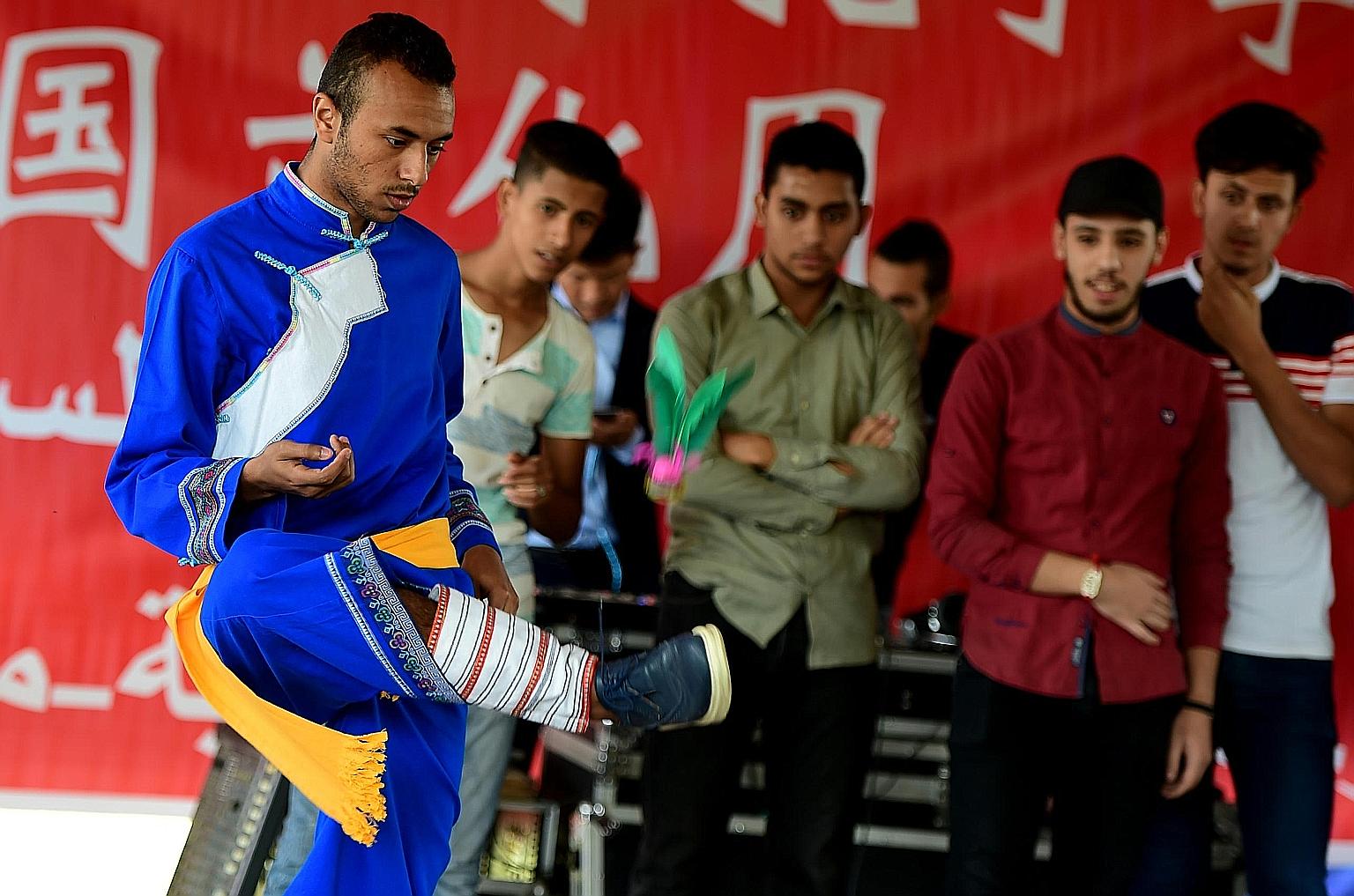Beijing spent $65b on charm offensive to win friends: US study
Sign up now: Get ST's newsletters delivered to your inbox

Students in Ismailia, in north-eastern Egypt, taking part in cultural activities organised by the Confucius Institute at the Suez Canal University as part of a Chinese cultural week last October.
PHOTO: XINHUA
China has gone all out to woo its neighbours in recent years, spending at least US$48 billion (S$65 billion) to win friends between 2000 and 2016, a US study has found.
The lion's share, or US$45.8 billion, was spent on infrastructure, while the rest went to humanitarian aid, debt relief, and grants and loans given as "gifts" with no earmarked purpose.
China's charm offensive also involves the spread of language and cultural schools known as Confucius Institutes, and a slew of exchange programmes and official visits to burnish China's image abroad.
The 91-page report, titled "Ties that bind: Quantifying China's public diplomacy and its 'good neighbour' effect", examined China's use of public diplomacy to persuade citizens to sympathise with its views and leaders to side with its position.
The study was done by researchers from the US-based AidData at the College of William and Mary, the Centre for Strategic and International Studies and the Asia Society Policy Institute, and supported by the US State Department.
Released yesterday, it comes amid recent worries of Chinese influence in domestic affairs, particularly in Australia, and fears that Beijing is using loans to gain leverage over poor countries that default.
"China is relatively late to the public diplomacy game, but what Beijing may lack in experience, it makes up for in leaps and bounds in enthusiasm," its co-author and AidData policy analysis director Samantha Custer said at a Chinese public diplomacy conference here yesterday.
The study found that Beijing's overtures have seen some success, with neighbours more likely to vote with China at the United Nations General Assembly when given more development aid and funds for political leaders' pet infrastructure projects.
A country was also more likely to side with Beijing the more official visits it received. The report said these visits could be a potent tool for Beijing to cultivate close ties with political elites and coax them to adopt its positions. "Beijing's intense focus on courting political and business elites, as well as its emphasis on financial diplomacy, could increase the risk of undue influence with leaders willing to exchange favours for economic gain."
It cited the case of Cambodia to show how Beijing used the carrot of debt relief to reward policymakers for acting in line with its objectives.
Shortly after Cambodia used its position as chair of the 2016 Asean summit to block a statement on the South China Sea, China announced a US$90 million debt forgiveness package for it, the study noted.
A country, however, is more likely to vote with China, and perceive China in a better light, the more Confucius Institutes it has.
These China-funded centres are "structured to deliver Chinese content including language, culture and messages, as well as control the narrative around Chinese interests", the study said. But it conceded that because Confucius Institutes must be approved by a host country, the countries may already have had better impressions of China to begin with.
"Given growing sensitivities in several East Asian and Pacific countries regarding the fine line between public diplomacy and clandestine influencing operations, democratic governments in the region should take additional steps to curb foreign influence in their domestic political activities or campaigns," the study concluded.
But at yesterday's event, Tsinghua University professor Zhao Kejin said there were many misperceptions of China's intentions. "Based on my interviews with officials and some top leaders, the consensus is not to be No. 1 in the world. We enjoy being No. 2 because we are provided more public goods. So, we hope the US can be the global leader and China can be No. 2, following the US," he added.



